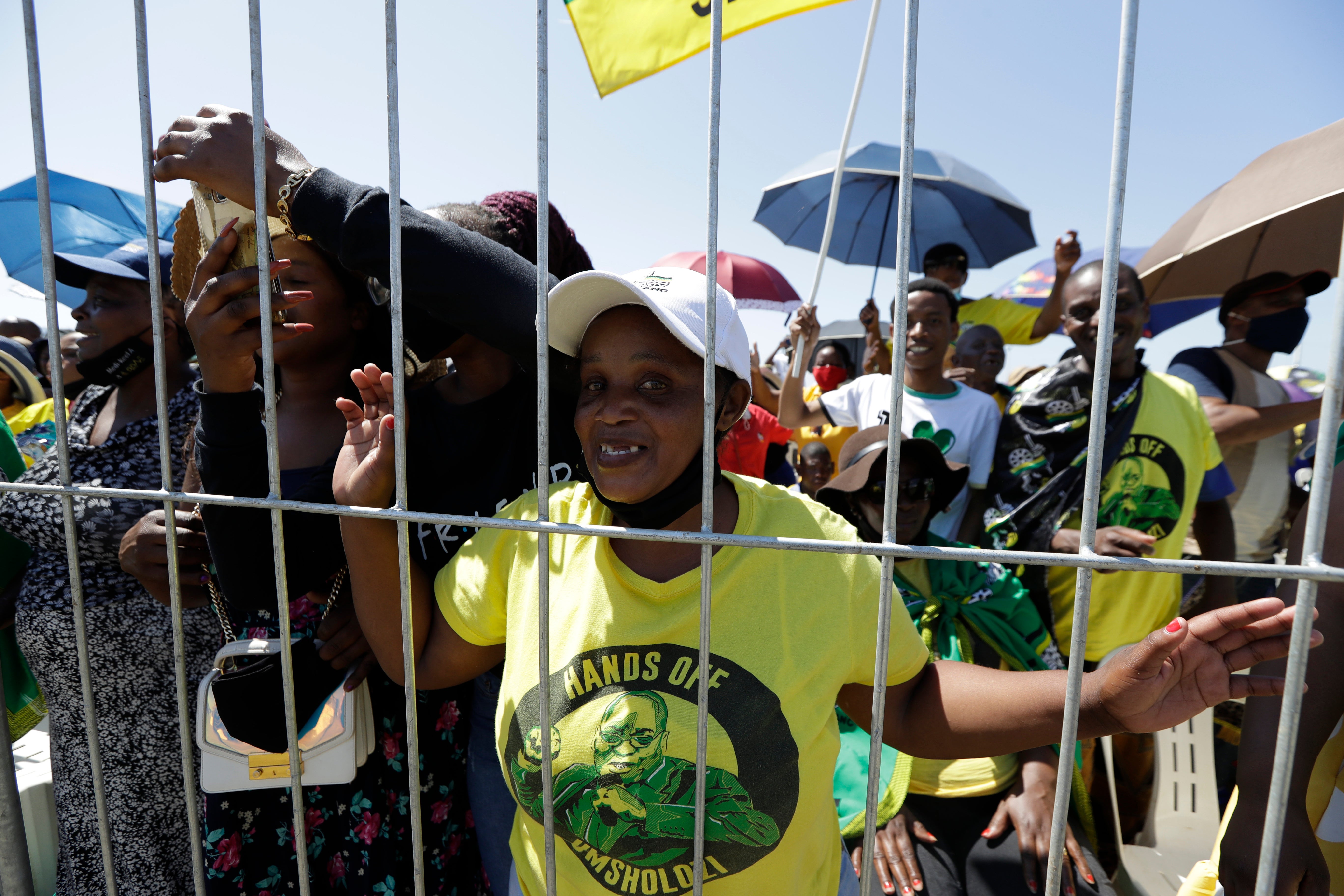South Africa's ex-president says he was unfairly imprisoned
Former South African President Jacob Zuma claims he was sent to prison in July because the country’s justice system is unfair

Your support helps us to tell the story
From reproductive rights to climate change to Big Tech, The Independent is on the ground when the story is developing. Whether it's investigating the financials of Elon Musk's pro-Trump PAC or producing our latest documentary, 'The A Word', which shines a light on the American women fighting for reproductive rights, we know how important it is to parse out the facts from the messaging.
At such a critical moment in US history, we need reporters on the ground. Your donation allows us to keep sending journalists to speak to both sides of the story.
The Independent is trusted by Americans across the entire political spectrum. And unlike many other quality news outlets, we choose not to lock Americans out of our reporting and analysis with paywalls. We believe quality journalism should be available to everyone, paid for by those who can afford it.
Your support makes all the difference.Former South African President Jacob Zuma claims he was sent to prison in July because the country’s justice system is unfair.
Zuma addressed his supporters on Thursday through an audio message at a prayer event in Durban where many of his supporters arrived in packed buses. It was one of his first public comments since he was released from prison in September on medical parole.
“I remain a prisoner under strict parole conditions. It feels like what house arrest and banning orders must have felt like during the colonial apartheid government,” Zuma said in the audio message.
Zuma, 79, was imprisoned for defying a court order to testify at a judicial inquiry probing allegations of corruption during his presidential term from 2009 to 2018. Zuma has been implicated in wrongdoing by several witnesses including former Cabinet ministers.
He refused to appear before the commission despite an order by the country’s highest court, the Constitutional Court
Zuma served nearly two months of his 15-month jail sentence at the Estcourt Correctional Center before he was controversially released on medical parole. Correctional Services Commissioner Arthur Fraser approved Zuma’s release against the recommendation of the parole board, which had said he should remain in jail as he was in a stable condition.
Zuma spent most of his sentence in the prison's hospital wing and was later transferred to an outside hospital where he underwent surgery in August. Zuma's lawyers have not disclosed the reason for the surgery or his medical condition.
Political analyst Xolani Dube said the prayer event for Zuma shows the extent of political divisions within the ruling African National Congress party, which will soon be contesting local government elections.
“It is nothing but a show of strength by the one faction against the other. They are using his (Zuma's) charisma and character to fight the internal factional battles of the ANC," said Dube.
Zuma still faces corruption charges in a separate case in which he is accused of receiving bribes from French arms firm Thales during South Africa’s controversial arms purchase in 1999. Zuma has pleaded not guilty to the charges and is applying for the lead prosecutor in the case, Billy Downer, to recuse himself from the matter. Zuma is expected to appear in the Pietermaritzburg High Court next week for that case.